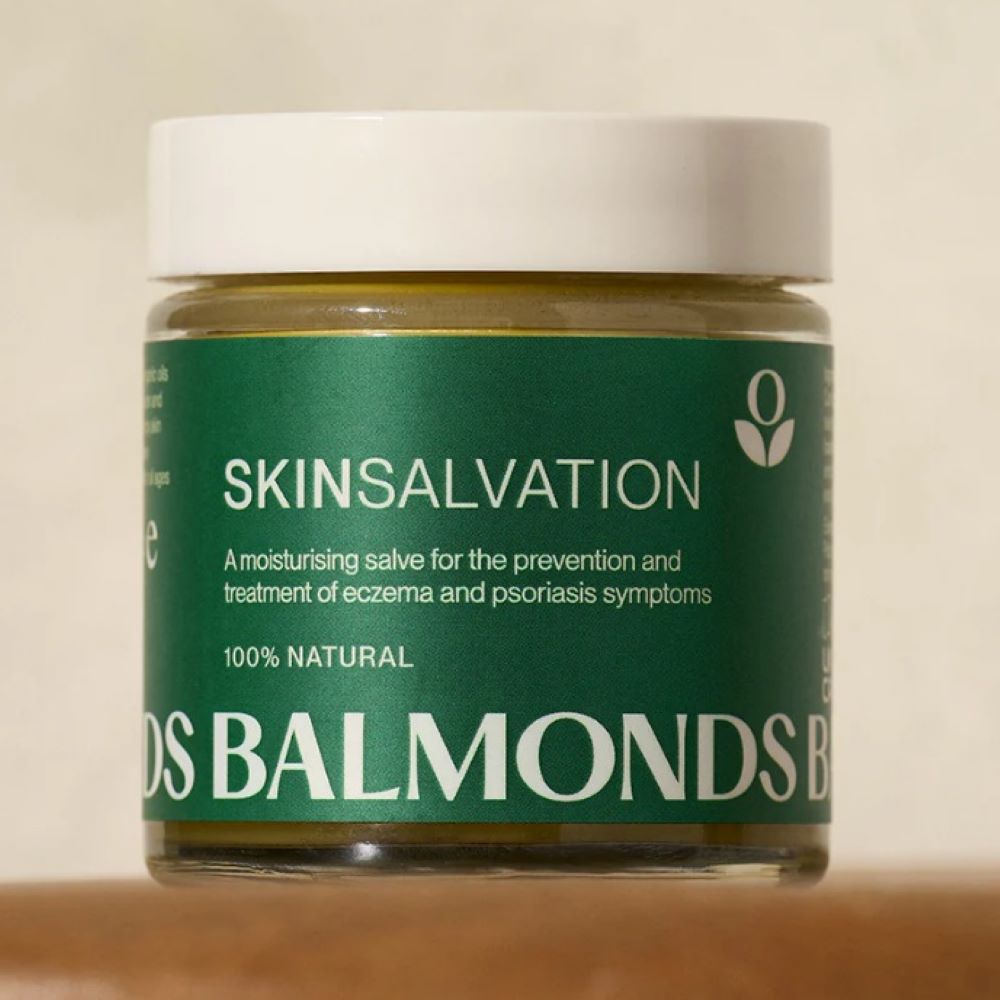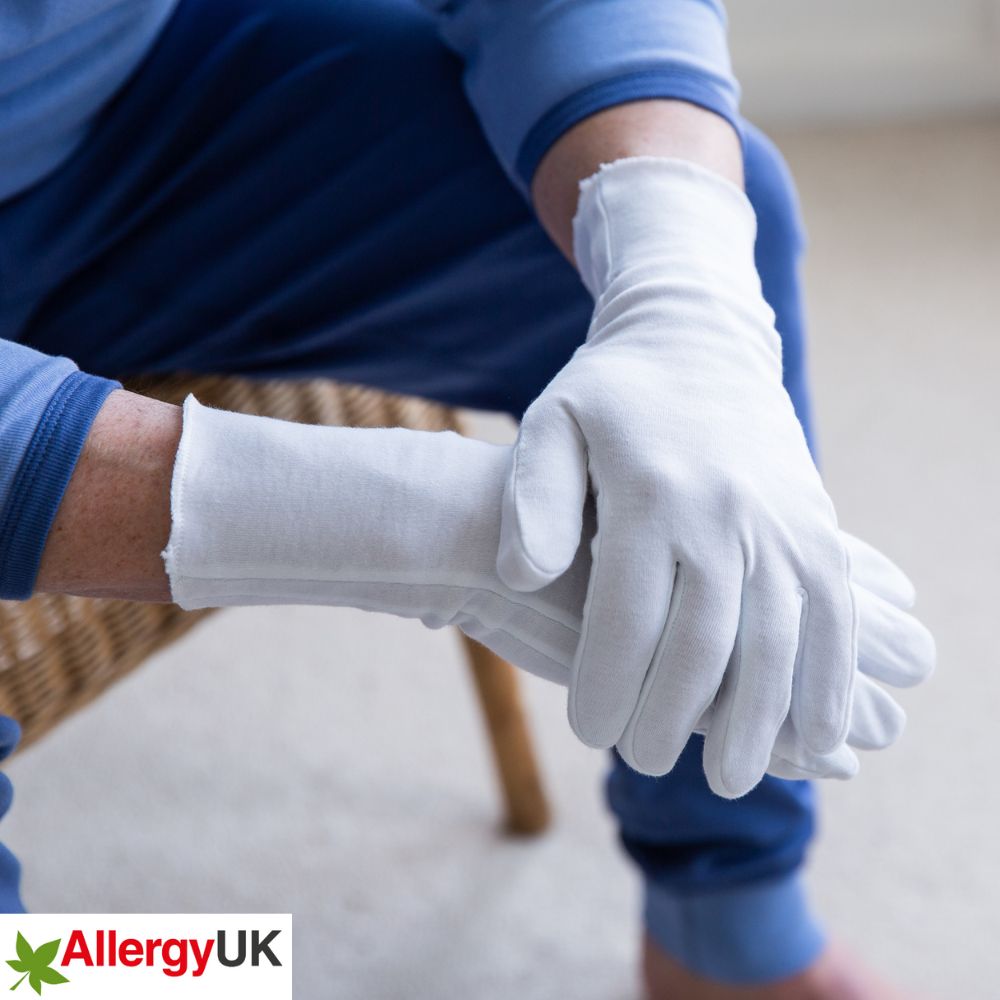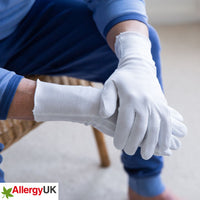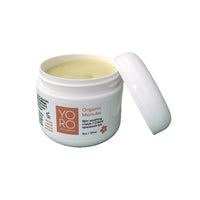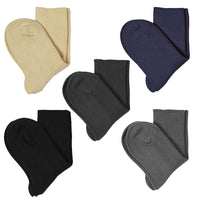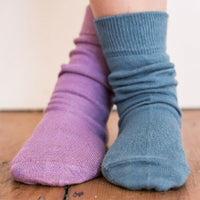
Thriving at Uni with Eczema & Allergies
Thriving at Uni with Eczema & Allergies
Starting university, college or a new job is an exciting and transformative time in life. But if you have eczema or allergies, the transition can come with unique challenges. The good news is that with some careful planning and a proactive approach, you can manage your condition effectively while enjoying all that your new life has to offer.
This guide will help you navigate the preparation process, ensuring that your skin and allergies don’t hold you back as you embark on this new chapter.
In case you don’t want to read this in detail, we’ve summarised the key points here:

Bonnie’s personal top tips:
- buy good quality bedding
- bring your own laundry detergent
- know what meals to make / meal deal options you can have
- take spare creams and medication
- pre-register with a GP
- frequently dust / clean your room
Understanding Your Condition
Before diving into practical tips, it’s essential to have a clear understanding of your eczema or allergies. Knowing your triggers, symptoms, and how your condition responds to different environments will empower you to manage it better.
Talking to your parents about this in advance is important – if you don’t know already, ask them to talk you through how to manage your skin and allergies and what your medical history is.
- Identify Triggers: Whether it’s certain foods, dust, pollen, stress, or specific skincare products, knowing what triggers your eczema or allergies is crucial.
- Know Your Symptoms: Eczema might flare up with dry or weeping itchy patches, while allergies can cause sneezing, rashes, or even breathing difficulties. Planning how to deal with each of these situations will reduce stress if and when they materialise.
- Medication Awareness: Ensure you have clear written guidance on what medications you have been prescribed for your condition, including how and when to take them.
Pre-Departure Planning
Preparing for university or college begins long before you set foot on campus. Here’s how to get started:
Choose / Research Your Accommodation:- If you have a choice, opting for self-catering will enable you to manage any food allergies more easily than catered accommodation. But even if you are in catered accommodation having access to a kitchen will be helpful.
- If dust impacts you, it’s worth finding out if there is accommodation with hard floors vs dusty carpets but as long as you vacuum fairly regularly this is usually manageable. Good ventilation is also important.
- If shared rooms are a possibility, a doctors note might be obtained in some circumstances to support an application for a single room or private bathroom.
- Ensure you have enough medication to last you for at least the first couple of months. Get access to an online repeat prescription service or set up a doctor’s appointment well in advance of needing further medication.
- Ensure you have any medical documentation, including letters detailing your condition and prescriptions in case you need them in an emergency or for a local GP (see below).
- If you’ll be moving any distance away from home you may need to register with a GP practice where you are in termtime. So do your research in advance and ask which GPs the university or college recommends so you can register soon after arrival and ensure they understand your condition and requirements.
- Buying ready meals is tricky with food allergies (and expensive) so write down a list of easy meals you are happy to shop for and prepare and make sure you know how to cook them or practice at home before you go, taking the right equipment/pans etc.
- Take some different sizes of plastic food boxes with you so you can make extra quantities of food and freeze it or keep it in the fridge, reducing the time spent cooking. These are also great for taking lunch or food out when you aren’t sure if there will be suitable options available to you where you are going.
- Check out the location of your nearest supermarket and suitable fast food outlets (on and off campus) with allergy friendly options.
- You probably do this already but always read labels and ask about ingredients. Consider carrying a small card with your allergies written down to show dining staff or in restaurants
- Prepare a medical kit to take with you with all your essential medications, emollients, antihistamines and other treatments you might need. Include a first-aid kit with bandages, antiseptic cream.
- Consider toiletries you’ll need and stock up – non-perfumed soap substitute for the shower / basin, deodorant for sensitive skin, hypoallergenic cleanser and face cream. See Eczema Clothings’ range of natural options here.
- Take bedding – nighttime is often the most important time and when the itch/scratch cycle kicks in to destroy your skin. Invest in dust mite covers for mattresses and pillows and take at least two sets of organic cotton (or just cotton) bedding – sheets, duvet cover, pillowcases.
- Identify one or two super comfy outfits to wear in private for flare ups. We love Cotton Comfort’s 100% Organic Cotton Pyjamas and Eczema Scratch Mitten T with either closed (for night) or opening hands (for day) or just try a long sleeve t-shirt and leggings that are made of organic cotton.
- Think about laundry – take your own non-bio laundry powder or liquid to use. Once there, find out where the nearest washing machines are and how to use them, use an extra rinse cycle if possible.
- Have a refillable water bottle – dry skin is more prone to eczema flare ups so keeping hydrated is essential. Also, if you do come into contact with an allergen (e.g. food) that creates hives, having fresh water to hand to quickly wash it off is good.
- Invest in a nice comfy bag – you’ll probably be carrying books and a laptop regularly and you’ll also likely need to always have with you some travel size skincare products and medication. So having a bag you really love and are happy carrying every day is crucial. Label it (or at least your medication) clearly with your name and number in case you lose it.
- Find out if the water in your new location is hard or soft. If it's hard it will dry your skin out more so you could invest in a water softening shower head or just try to limit showers and baths to every other day and always use soap substitutes (esp avoiding Sodium Lauryl Sulfate) like an emollient in the shower and moisturise well after.
Navigating Uni / College Life
Once you’ve arrived, there will be so much to take in, just make sure you do a few key things to ensure you can enjoy it to the full:
Register with a local GP –- If you’ve moved away from home. Make an appointment to inform them of your conditions and medication requirements well in advance of needing more medication.
- whilst it might feel awkward, you need to let your roommates and any close friends know about your condition in the first few days. You don’t need to go into great detail, but it’s helpful if they understand your triggers and what to do in case of an emergency. Sharing your story with friends makes them feel trusted and supportive – don’t feel embarrassed doing this.
- Stick to a consistent skincare routine, especially during stressful times like exams. Use your prescribed emollients regularly and avoid experimenting with new products that might irritate your skin. Carry travel-sized versions of your skincare products in your bag, so you can reapply as needed throughout the day. If necessary, identify a friend that can help you apply creams to areas you can’t reach, a good friend will be happy to help you.
- University can be stressful, and stress is a known trigger for eczema and allergies. Try to incorporate stress management techniques like meditation, exercise, or yoga into your routine. Ensure you’re getting enough sleep, as lack of rest can exacerbate symptoms.
Be Prepared for Social Situations – social activities can expose you to triggers like alcohol, sweat or certain foods.
- It’s okay to skip activities that might lead to a flare-up or to bring your own safe alternatives to social gatherings. Don’t be afraid to explain your condition – most people will be understanding and accommodating. It’s estimated that over 10% of kids and young adults now have an allergy &/or eczema in the UK.
- Always have a plan that you can follow if you do start feeling uncomfortable, experiencing a reaction or a flare up. E.g. taking medication, rinsing with cold water and using emollient or changing your clothes.
- Know how to get home if you need to – then once there have a plan e.g. take a quick shower to wash off allergens, slather on some emollient then jump into your go to comfy outfit and put on your fave Netflix show to relax
Seeking Support
University life is full of ups and downs, and managing a chronic condition can sometimes feel overwhelming. Don’t hesitate to seek support:
University / College Health Services:- Familiarise yourself with the university’s health services &/or local GP practice. Make an appointment to introduce yourself - this way, if you have a flare-up, they’ll already know your history and can offer appropriate care.
- Many universities have support groups for students with chronic conditions. Joining such a group can provide you with a sense of community and access to resources and advice from fellow students who understand what you’re going through.
- If managing your condition is causing you stress or anxiety, don’t hesitate to talk to a counsellor. Mental health is just as important as physical health and we know that eczema and allergies are not just ‘skin deep’ but have a significant impact on people’s emotions and mental health. Many universities offer free or low-cost counselling services.
Useful Support Services – please do comment below or contact us if you have any additional suggestions, we would love to share these with our community.
Allergy UK/ Universities and Higher Education
https://www.studentminds.org.uk/
anaphylaxis.org.uk/going-to-university/
Author – Jo Greenslade. Jo is MD of Eczema Clothing and Bonnie (her daughter) is a 2nd year uni student - Bonnie had severe eczema as a child and has multiple life threatening food allergies.

